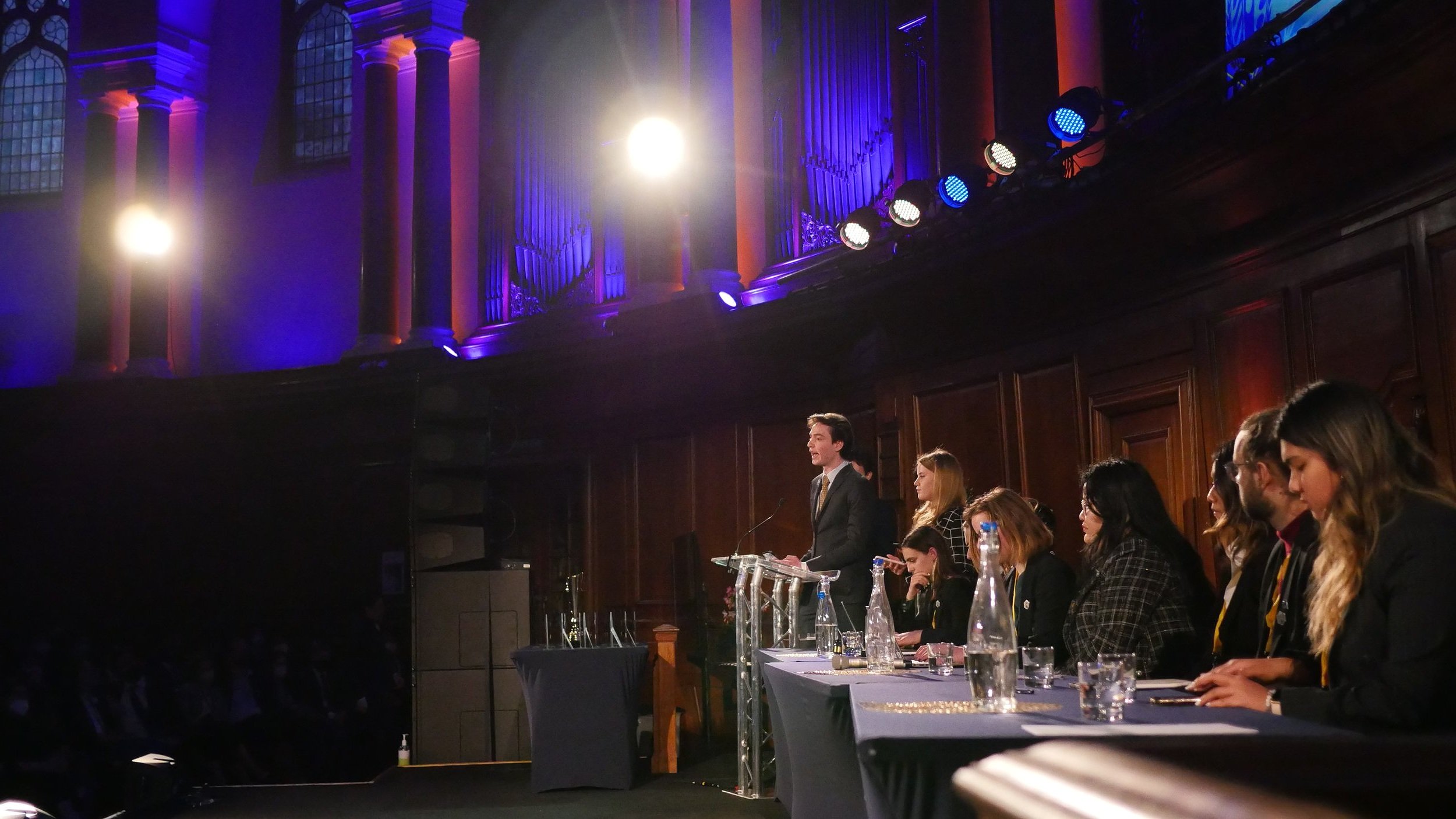
LIMUN is back for a 26th time!
Join us in-person
21st - 23rd February, 2025
The 26th Edition
The London International Model United Nations (LIMUN) University Conference is back for 2025! The 26th edition of LIMUN will take place in London from the 21st to the 23rd of February 2025. Attracting chairs, ambassadors, and delegates from all over the globe, LIMUN acts as a platform to promote cosmopolitan democracy and multilateralism.
In 2021, for the first time in its history, LIMUN could not hold the usual in-person conference known for its historic venues and engaging experience. LIMUN 2021 was successfully held in the online environment - a huge feat in itself. It provided Delegates and Chairs with one of the most immersive and global experiences of a pandemic-ridden academic year. Building upon the success of LIMUN 2022, 2023 and 2024 after its return to an in-person conference, the Secretariat of LIMUN 2025 is determined to replicate this success and maintain the magic of in-person MUN conferences.
The Pursuit of Multilateralism: Fostering New Dialogues for Progress
As we enter an era of unprecedented uncertainty in global governance, the ambitious theme of the London International Model United Nations (LIMUN) University Conference 2025 is “The Pursuit of Multilateralism: Fostering New Dialogues for Progress”. Recent crises in an increasingly volatile world have highlighted the crucial need to restore multilateral engagement and mutuality. The ongoing transition to multipolarity, where power is not only more distributed among states but also among non-state actors, brings an array of overlapping challenges that nations must address. Some states have chosen to retract from global platforms of discussion to face the instability brought by this transition. However, what is truly needed is a setting for dialogue and building trust.
In light of the recent words of the Secretary-General of the United Nations, António Guterres – “Multipolarity has created opportunities for balance and justice” – Member States must remember that trust is the currency that fuels multilateralism. As economic crises unfold, threats to international security reach unprecedented levels, and as human rights retreat, the United Nations’ institutions must set the scene for dialogues which endorse the interest of the people, rather than a privileged few.
At LIMUN UC 2025, we will ask you the following question:
“How can we foster multilateralism in an era of international competition?”
It will be your responsibility to transform competition and turmoil into a mutually beneficial environment for the countries you represent. You will face the considerable challenge of collaborating with your fellow Delegates to lay down a foundation for trust and diplomacy that will last for decades. It is important that you take this opportunity to uphold the principles of the United Nations and create connections that go beyond the scope of borders and nationhood.
Clusters
-
Restoring International Stability through Peace-building Initiatives
While the UN General Assembly has declared 2025 to be the “International Year of Peace and Trust”, the state of international security appears to have never been more at threat. Militarisation, protectionism and mistrust are gradually taking precedence over the search for compromise and the principles that have underpinned diplomacy for over 75 years. This cluster provides Delegates with a place where they can reconcile with collaborative actions for peace in the face of rising conflicts across the globe. It is only once nations have embraced the new era of multipolarity that the global order will once again prosper amidst multilateral engagement and mutual understanding.
Committees: DISEC, SPECPOL, NATO, UNSC
-
Reflecting on Past Mechanisms for Crises Mitigation
In this era of great volatility and instability, where the actions and decisions of today might influence the lives of countless people for decades to come, we must look back at how the leaders of the past navigated their respective crises. This cluster not only allows Delegates to remember the numerous times when diplomacy prevailed in face of great danger, it also encourages them to reflect on the mechanisms that were used in those times. By doing so, Delegates are presented with the immense opportunity to explore different paths to their predecessors while reinventing the practices that have guided us to the present day.
Committees: UNCIO, FSC, HN
-
Transforming Economic Uncertainty into Cohesive Opportunities for Development
While nations are still slowly recovering from the aftermath of the COVID-19 pandemic, the global norms and institutions established after the Second World War to promote economic cooperation are increasingly under pressure. The transition to a multipolar world necessitates a re-examination of trade patterns and a re-assessment of economic policies, as power shifts to emerging nations which rise disconnected, leading to economic inequalities. The efforts of governments to adapt to this new challenge have remained largely uncoordinated, resulting in heightened uncertainty and uneven recovery across the international community. With the added strain of shortages in vital resources impacting the global economy, the need for a consensus on the next path to follow is stronger than ever. This cluster aims to leverage existing platforms of discussions to design innovative solutions that drive development, foster inclusive growth and create multilateral opportunities.
Committees: UNDP, ECOFIN, ECOSOC, IMF
-
Decisive Actions for Lasting Justice Systems
Just as various national legal systems guarantee the protection of individuals, mediate disputes, and uphold established norms, the global justice infrastructure holds significant responsibility for setting a clear framework for states to interact within. The modern international legal system, the legacy of the past 75 years, has contributed to promoting economic and social development, as well as advancing international peace and security. As we embrace multilateralism, it is essential that international justice continues to stand as an impartial and apolitical mediator, advocating for accountability and transparency in all cases. While this system stands as proof that nations can set aside their own agendas and compromise in exchange for fair judgement for all, the growing protectionism of certain nations heavily threatens its execution and relevance. This cluster encourages Delegates to consider improvements in the credibility and enforceability of international law while balancing state sovereignty, national interests and maintaining institutional impartiality in the face of increased multipolarity.
Committees: Legal, INTERPOL, ICJ
-
Achieving Global Human Integrity
When nations gathered in the aftermath of the Second World War to build the United Nations, a dedication towards maintaining international peace and security was not the only purpose they set. As stated in Article 1 of the United Nations Charter, the organisation must also serve as the catalyst for “promoting and encouraging respect for human rights”. Although remarkable progress has been made in the last 50 years, significant challenges remain, as individual national interests too often overshadow the needs of the global population. In today’s reality, where an increasing number of nations are retracting from global collaboration, those already struggling to live in dignity bear an even greater burden. However, by achieving multilateralism, nations can reverse the trend and initiate a dialogue that can change the lives of billions . This cluster encourages Delegates to come together and combine their efforts to ensure that every individual is accorded the dignity to which they are entitled. The importance of unifying our actions resonates even more when we realise the challenges that lie ahead.
Committees: UNHRC, UNICEF, UN WOMEN, WHO, UNESCO, UNHCR
-
Unifying International Action for a Habitable Future for All
The battle against climate change has suffered significantly amid recent global turmoil, as nations' attention has been diverted to other pressing issues. However, the situation remains more critical than ever, and we continue to look away while the house burns. Each month that passes becomes the hottest in history and a concerning number of individuals are faced with unbearable consequences. It is vital that we continue to reexamine our consumption and living habits to achieve sustainable development. The efforts must not only be intensified on the environmental front, but also on social and economic aspects, where mindsets and behaviours require drastic change. This cluster presents Delegates with a considerable challenge: devising groundbreaking solutions to achieve sustainable development, and setting steps towards ensuring we can thrive in today’s world without compromising the future of those born tomorrow.
Committees: UNEP, UNDRR, CoP
-
Aligning Regional Interests with the Global Discourse
In an era where many nations are retracting from global discussions, regional organisations are essential for transforming multipolarity into successful multilateralism. These organisations form the foundational layers of collaboration among multiple stakeholders, and their role in ensuring that every country's voice is heard must not be underestimated. They not only facilitate nations' access to the global stage but also serve as catalysts for economic and social development. This cluster invites Delegates to consider how the interests of these organisations can be harmonised with the global course of action, and how the interconnectivity and collaboration among stakeholders in various regions can be fostered.
Committees: AU, OAS, ASEAN, EC
